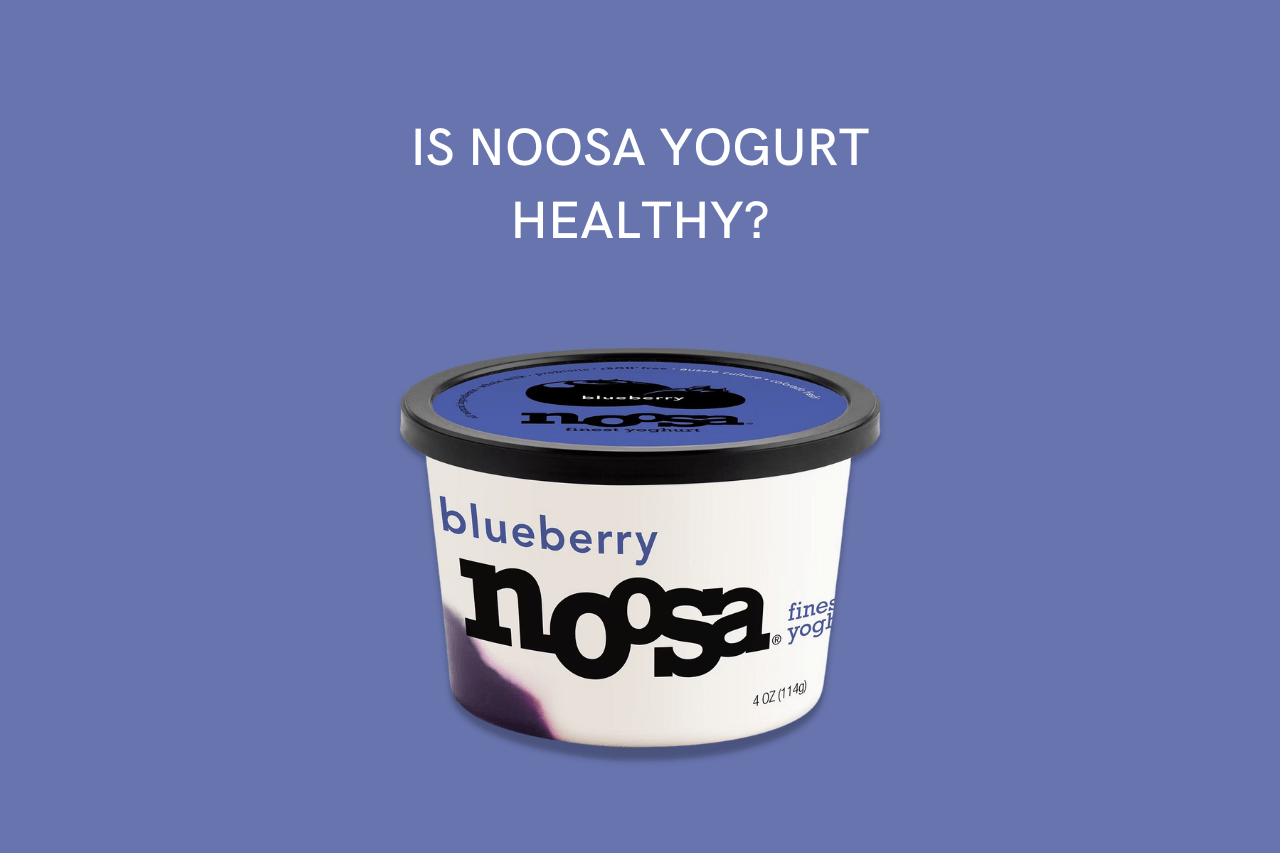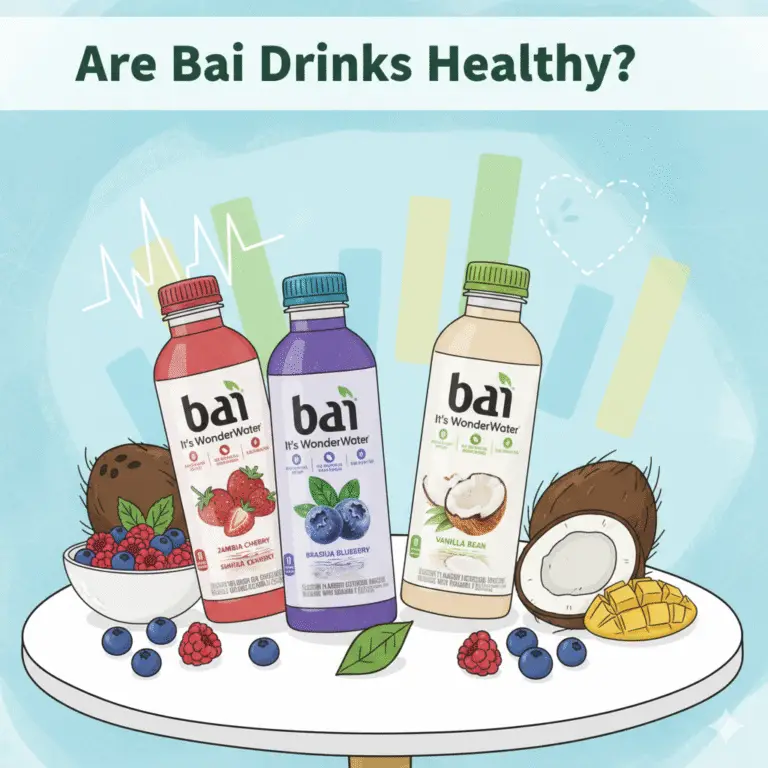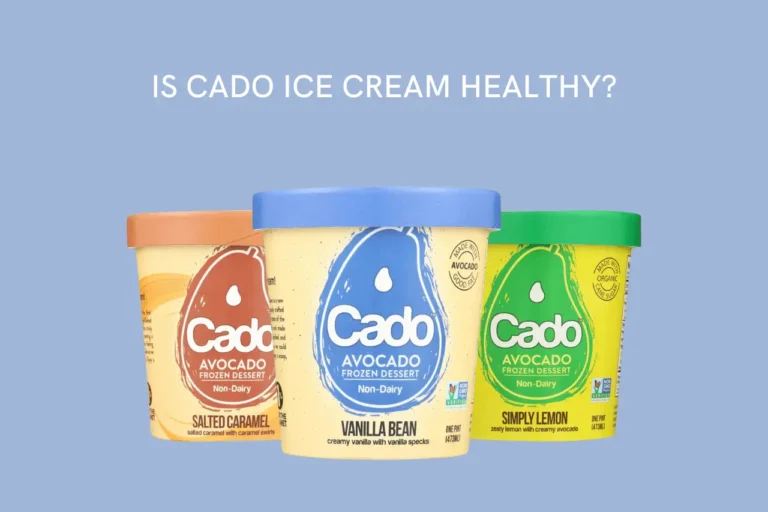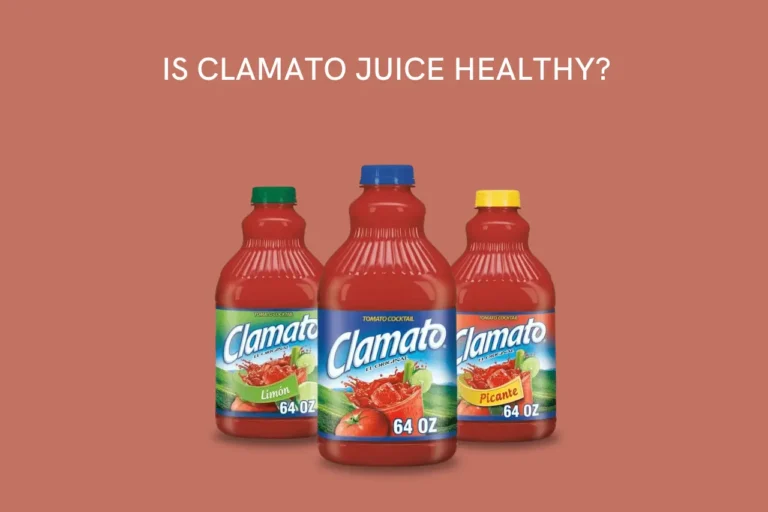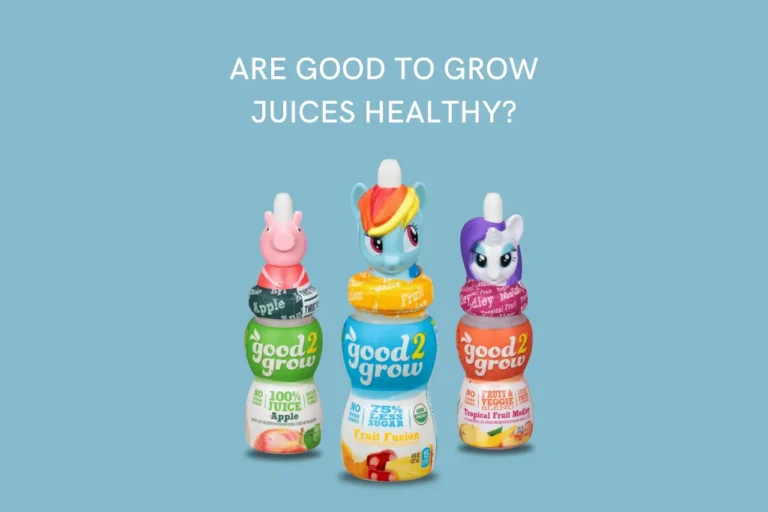If you’re a yoghurt lover, chances are you’ve heard of Noosa, and perhaps most of you’ve eaten it.
Noosa is a popular brand of yoghurt known for its thick, creamy, and velvety texture. It is made from whole milk with a touch of honey and is available in over ten delectable fruity flavors.
Though one common question people often ask about Noosa yoghurt is whether or not it is healthy.
Short answer: Noosa yoghurt is not very healthy for you as it has high sugar and saturated fat content. However, it’s a good source of protein, calcium and contains probiotics.
Let’s dive deeper into Noosa yoghurt and know everything you need to make an informed decision.
Also read: Are Triscuits Healthy? The Truth About These Crackers
Ingredients in Noosa yoghurt
Noosa yoghurt is made with a simple list of good quality ingredients, such as:
Whole milk: Noosa yoghurt is made using fresh, high-quality whole milk from cows that have not been treated with any artificial growth hormones.
Fruit pure: To add fruity flavors to it’s yoghurt, Noosa uses real fruit puree.
Cane sugar: Every Noosa yoghurt flavor contains cane sugar as the main sweetness ingredient. It is less processed and considered better than regular or table sugar.
Wildflower honey: Besides cane sugar, Noosa also uses wildflower honey to add a touch of sweetness to their yoghurt.
It is made from the nectar of various flowers and usually has a stronger flavor than other types of honey.
Kosher gelatin: It is a type of gelatin used as a stabilizer that helps to improve texture and prevent separation.
Note that Noosa yoghut uses bovine gelatin, which might not be suitable for vegetarians.
Pectin: It is a natural fiber found in fruits and vegetables and is often used as a jelling or thickening agent. This is the ingredient that gives the Noosa yoghurt it’s signature velvety texture.
Live active cultures: Every Noosa yoghurt flavor contains live active cultures. These are also known as probiotics and provide many health benefits.
How much sugar is in Noosa yoghurt?
Noosa yoghurt is high in sugar ranging from 14g to 37g, depending on the flavor. Honey is the flavor with the least amount of sugar, while lemon flavor has the most.
As per American Heart Association, the daily sugar limit for men is 36g, while for women, it is 24g.
Consuming a single serving(227g) of the least sugar flavor(Honey) of the Noosa yoghurt would cost 38% of the daily sugar limit for men and 58% for women.
And if you consume the highest sugar flavor(Lemon), it exceeds 100% of the daily sugar limit for both men and women.
Furthermore, Noosa yoghurt contains both natural and added sugar, with most of it being added sugar.
Although Noosa yoghurt uses cane sugar, which is considered a better alternative to table sugar, it can still have the same negative effects if consumed in excess.
Here is a table showing the sugar content of all Noosa yoghurt flavors.
| Noosa yoghurt flavor | Added sugar(g) | Total sugar(g) |
|---|---|---|
| Blueberry | 18 | 31 |
| Blackberry | 18 | 31 |
| Raspberry | 17 | 30 |
| Strawberry | 20 | 33 |
| Coconut | 17 | 29 |
| Key lime | 22 | 34 |
| Peach | 20 | 34 |
| Mango | 17 | 31 |
| Honey | 14 | 28 |
| Lemon | 25 | 37 |
| Pumpkin | 17 | 30 |
| Vanilla bean | 19 | 32 |
| Tart cherry | 17 | 30 |
| Strawberry rhubarb | 18 | 31 |
Is Noosa yoghurt a good source of protein?
Noosa yoghurt can be considered a good source of protein, with each serving(227g) providing 11g of protein. The honey flavor contains the highest protein content, with 13g per serving.
However, note that the source of protein in Noosa yoghurt is milk, which is neither suitable for vegans nor lactose intolerance.
If you are looking to maximize your daily protein intake, Noosa yoghurt is a good option.
Also read: Are Animal Crackers Healthy? The Truth About Your Favorite Snack
Although, if you are on muscle-building goals and want more protein, you can go for Noosa hilo yoghurt.
This yoghurt is higher in protein and has less sugar than regular Noosa yoghurt.
Here is the protein comparison of Noosa yoghurt to other popular yoghurt brands.
| Yoghurt brand | Serving size(g) | Protein(g) |
|---|---|---|
| Noosa yoghurt | 227 | 11-13 |
| Yoplait yoghurt | 225 | 5-10 |
| Gogo squeez yogurtz | 85 | 4 |
| Chobani yoghurt | 150 | 11 |
How much sodium is in Noosa yoghurt?
Noosa yoghurt contains 115 to 140mg of sodium per serving(227g), depending on the flavor. Key lime and strawberry have the lowest amount of sodium (115mg per serving), while pumpkin has the highest amount of sodium (140mg per serving).
Sodium is an essential part of a diet, but too much can lead to various health issues.
Noosa yoghurt is low in sodium, providing less than 10% of the ideal daily requirement.
If you are someone who follows a low-sodium diet, Noosa yoghurt can be a good choice for you.
Here is a table showing the sodium content of all Noosa yoghurt flavors.
| Noosa yoghurt flavor | Sodium(mg) |
|---|---|
| Blueberry | 120 |
| Blackberry | 120 |
| Raspberry | 120 |
| Strawberry | 115 |
| Coconut | 120 |
| Key lime | 115 |
| Peach | 120 |
| Mango | 120 |
| Honey | 135 |
| Lemon | 130 |
| Pumpkin | 140 |
| Vanilla bean | 130 |
| Tart cherry | 120 |
| Strawberry rhubarb | 120 |
Is Noosa yoghurt high in saturated fat?
Noosa yoghurt is high in saturated fat containing 7g to 9g per serving(227g), depending on the flavor.
According to American Heart Association, the daily saturated fat intake limit for adults is 13g.
Consuming just one serving of Noosa yoghurt can easily exceed half of the recommended daily saturated fat limit.
While the studies regarding the impact of saturated fat on health are controversial, it is generally advisable to limit its consumption.
In addition, Noosa yoghurt contains a moderate amount of cholesterol, which is typically considered safe for most people.
However, if you are someone with heart-related issues, it is best to limit your Noosa yoghurt consumption due to its high saturated fat content and moderate cholesterol.
Here is a table showing the saturated fat and cholesterol content of Noosa yoghurt flavors.
| Noosa yoghurt flavor | Saturated fat(g) |
|---|---|
| Blueberry | 7 |
| Blackberry | 7 |
| Raspberry | 7 |
| Strawberry | 7 |
| Coconut | 9 |
| Key lime | 9 |
| Peach | 7 |
| Mango | 7 |
| Honey | 8 |
| Lemon | 9 |
| Pumpkin | 8 |
| Vanilla bean | 8 |
| Tart cherry | 7 |
| Strawberry rhubarb | 7 |
Is Noosa yoghurt good for weight loss?
Noosa yoghurt is not ideal for weight loss as it is high in sugar and calories with no fiber content.
Even consuming the least sugary flavor(honey) can add a significant amount of sugar to your daily diet.
In addition, Noosa yoghurt is high in calories containing 260 to 320 calories per serving, depending on the flavor.
Most of these calories in Noosa yoghurt come from sugar, which provides empty calories and can hinder weight loss efforts.
So, if you are trying to lose weight, Noosa yoghurt is not an ideal option.
Remember that weight loss doesn’t depend on one specific food but on your overall diet and level of physical activity.
Does Noosa yoghurt have probiotics?
Noosa yoghurt contains live and active cultures such as L. acidophilus, L. bulgaricus, S. thermophilus, Bifidus, and L. Casei, which are all types of probiotics.
These probiotics provide many benefits, such as improving digestion, reducing inflammation, and boosting the immune system.
Is Noosa yoghurt gluten-free?
Most Noosa yoghurt flavors are gluten-free and safe for people with celiac disease.
The flavors that aren’t gluten-free include salted caramel chocolate, cookies & cream and lemon tart.
Is Noosa yoghurt lactose-free?
Noosa yoghurt is not lactose-free as it contains whole milk as the primary ingredient, which contains lactose.
Final words
While Noosa yoghurt comes with a wide range of yummy fruity flavors, it is not very healthy for you, and that’s because of it’s high sugar and saturated fat content.
However, it is a good source of protein and calcium and contains beneficial probiotics.
It would be healthier if the Noosa yoghurt had a sugar-free option.
Anyway, If you want to enjoy the Noosa yoghurt, it’s best to consume it in moderation and as a part of a balanced diet.
Found this information helpful? Share it.
Here are a few other posts that might also be helpful for you:
